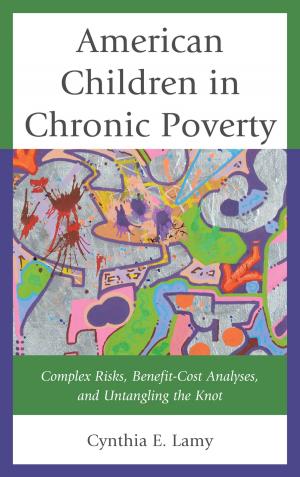Transforming Justice, Transforming Lives
Women's Pathways to Desistance from Crime
Nonfiction, Social & Cultural Studies, Social Science, Crimes & Criminals, Criminology, Gender Studies, Women&| Author: | April Bernard | ISBN: | 9781498519816 |
| Publisher: | Lexington Books | Publication: | October 30, 2015 |
| Imprint: | Lexington Books | Language: | English |
| Author: | April Bernard |
| ISBN: | 9781498519816 |
| Publisher: | Lexington Books |
| Publication: | October 30, 2015 |
| Imprint: | Lexington Books |
| Language: | English |
What is a just response to persons seeking to desist from criminal behavior? In America, over the last several decades mass incarceration has emerged as the prevailing policy response to crime and reoffending. The majority of those who are imprisoned will be released, and those that are released tend to return to communities challenged by high rates of violence, crime, unemployment, and poverty. In these conditions, without some type of intervention, persons with criminal histories are likely to reoffend.
April Bernard, through compelling interviews and field research with formerly gang affiliated women, illuminates how through community support and their active engagement in peacemaking work in distressed neighborhoods throughout Chicago they were able to desist from crime, rebuild their lives, and become meaningful contributors to their communities. This book explores the role of community in facilitating the commitment to desist from crime, by offering critical support and opportunities for stewardship.
Bernard provides a timely analysis of the transformative potential of a new perspective on criminal justice which incorporates stewardship and community engagement as a fundamental principal in the response to persons seeking to desist from criminal behavior, particularly women. The book combines moving personal narratives with concrete practical evidence to call for an alternative to ideology that supports the existing punitive policies and practices of the criminal justice system and the corresponding lack of interventions and opportunities for persons seeking to desist from crime. This deeply informed, and perceptive analysis concludes with suggestions for alternatives that fit within a transformative justice paradigm.
What is a just response to persons seeking to desist from criminal behavior? In America, over the last several decades mass incarceration has emerged as the prevailing policy response to crime and reoffending. The majority of those who are imprisoned will be released, and those that are released tend to return to communities challenged by high rates of violence, crime, unemployment, and poverty. In these conditions, without some type of intervention, persons with criminal histories are likely to reoffend.
April Bernard, through compelling interviews and field research with formerly gang affiliated women, illuminates how through community support and their active engagement in peacemaking work in distressed neighborhoods throughout Chicago they were able to desist from crime, rebuild their lives, and become meaningful contributors to their communities. This book explores the role of community in facilitating the commitment to desist from crime, by offering critical support and opportunities for stewardship.
Bernard provides a timely analysis of the transformative potential of a new perspective on criminal justice which incorporates stewardship and community engagement as a fundamental principal in the response to persons seeking to desist from criminal behavior, particularly women. The book combines moving personal narratives with concrete practical evidence to call for an alternative to ideology that supports the existing punitive policies and practices of the criminal justice system and the corresponding lack of interventions and opportunities for persons seeking to desist from crime. This deeply informed, and perceptive analysis concludes with suggestions for alternatives that fit within a transformative justice paradigm.















